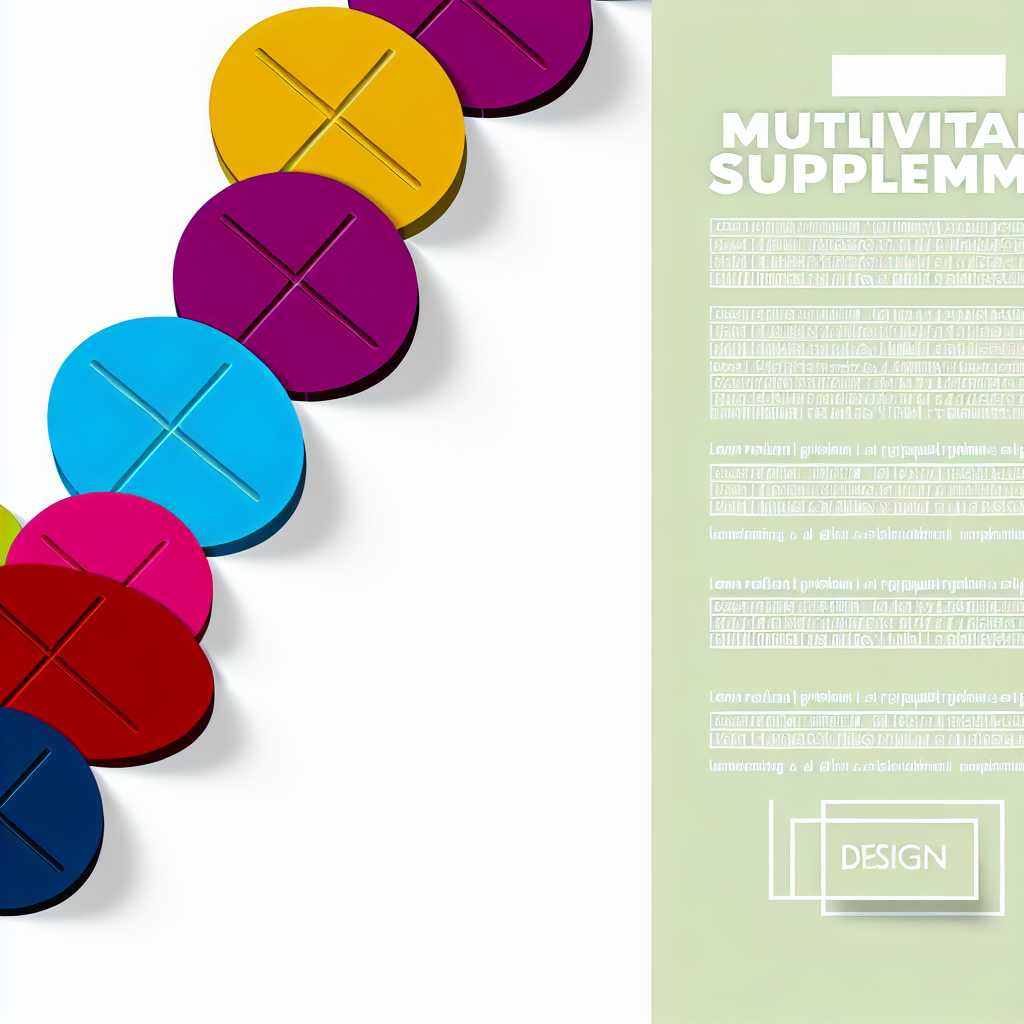Multivitamins are a household staple in the world of health and wellness. From boosting energy and immunity to filling nutritional gaps, these supplements promise to help you live a healthier life. But with hundreds of options available, how do you choose the right one? And are they really as effective as advertised? In this guide, we’ll explore the benefits of multivitamins, how to select the best supplement for your needs, and whether they’re worth including in your daily routine.
What Are Multivitamins?
Multivitamins are dietary supplements that combine essential vitamins and minerals into a single, convenient dose. Whether in the form of capsules, tablets, gummies, or liquids, they’re designed to help you achieve balanced nutrition — especially if your diet falls short of providing everything your body needs.
These supplements are particularly popular among individuals with busy schedules, dietary restrictions, or specific health goals. For example, vegetarians often turn to multivitamins with Vitamin B12 and iron, while those intolerant to dairy may look for options containing calcium and Vitamin D. Multivitamins act as your nutritional safety net, helping you stay on track even when life gets hectic.
Benefits of Multivitamins
Boost Energy Naturally
Do you often feel drained before your day even gets underway? Multivitamins are loaded with nutrients that help fight fatigue and boost energy levels. B vitamins, particularly B6 and B12, regulate your metabolic processes, ensuring your body converts food into usable energy efficiently.
Strengthen Your Immune System
Vitamins like Vitamin C and Vitamin D, along with minerals such as zinc, are immunity powerhouses found in many multivitamin formulas. Regular supplementation can help your body ward off infections and recover faster during cold and flu season.
Support Skin, Hair, and Nail Health
Looking to enhance your beauty regimen? Certain multivitamins that contain biotin, Vitamin E, and Omega-3 fatty acids can improve skin elasticity, reduce breakouts, and strengthen your nails and hair.
Fill Nutritional Gaps in Your Diet
It’s tough to hit every nutritional target when life gets busy. Multivitamins act as a convenient backup, ensuring that even with a less-than-perfect diet, you’re still getting key nutrients like iron, magnesium, or calcium.
How to Choose the Right Multivitamin for Your Needs
Match the Formula to Your Demographics
Multivitamins are often designed for specific groups, such as men, women, children, and seniors.
- Women: Look for formulas with more iron and calcium to support bone health and manage iron loss during menstruation.
- Men: Opt for multivitamins with magnesium and heart-healthy nutrients.
- Seniors: Choose products with extra Vitamin D, calcium, and B12, which address aging-related nutrient needs.
Choose High-Quality Brands
Safety matters. Always select multivitamins verified by trusted third-party organizations like USP or NSF. These certifications confirm that the product contains what it claims and is free of harmful additives.
Avoid Over-supplementation
More doesn’t always equal better. Excessive intake of certain nutrients, such as Vitamin A or iron, can lead to negative side effects. Stick to the recommended daily dosage, especially if you’re already getting some nutrients through your diet.
Are Multivitamins Safe? Side Effects You Should Know
For most people, multivitamins are perfectly safe when taken correctly. Minor side effects, like nausea or stomach discomfort, can occur if you take them on an empty stomach. To avoid these issues, try taking your supplement with a meal.
It’s also essential to consider interactions with medications. For example, Vitamin K can interfere with blood thinners, while iron supplements may impact certain medications. If you have any health conditions or are taking prescription drugs, consult your doctor before starting a new multivitamin routine.
Multivitamin or Single Vitamin: Which Is Better?
Should you opt for a multivitamin or stick to a single-vitamin supplement? It depends on your individual needs.
- Multivitamins are an excellent choice if you’re looking for a comprehensive solution to improve overall health and address multiple nutrient gaps.
- Single vitamins, on the other hand, are best for targeted deficiency management. For instance, people lacking Vitamin D due to limited sunlight exposure may benefit more from a dedicated Vitamin D3 supplement than a multivitamin.
Cost vs Value: Are Multivitamins Worth It?
Prices for multivitamins vary widely. You’ll find options ranging from economical daily formulas to premium products. The key isn’t just price — what matters is whether the supplement delivers value. Affordable options like Nature Made or Centrum often provide effective formulations without breaking the bank.
That said, investing in a well-researched and high-quality product could potentially save costs down the road by avoiding nutrient imbalance-related health issues. Choosing wisely can be a smart investment in your overall wellness.
Keeping It Practical: My Personal Take
I’ve used multivitamins on and off for years, particularly during times when I wasn’t as diligent with my diet. One memory stands out: During an especially stressful month juggling work and personal commitments, I started feeling run-down and sluggish. Adding a multivitamin felt like taking a step toward prioritizing my health again. It didn’t “fix” life’s chaos, but it did help me feel more balanced and supported. That small improvement — feeling energized enough to tackle the day — was worth it to me.
Final Thoughts: Should You Add Multivitamins to Your Routine?
Multivitamins aren’t a magic solution to health problems, but they can absolutely be useful tools for bridging nutritional gaps and supporting overall wellness. They’re especially helpful if you’re dealing with dietary restrictions, high stress levels, or inconsistent meals.
The right multivitamin depends on your individual needs. Take time to choose a product that aligns with your life stage, goals, and dietary habits. And remember, supplements are just one piece of the puzzle — a well-rounded diet and active lifestyle should remain your foundation.
Health isn’t about perfection; it’s about progress. Small steps, like including a multivitamin or making smarter food choices, can collectively raise your quality of life. So, take that proactive step because your body deserves every bit of the care you give it.
